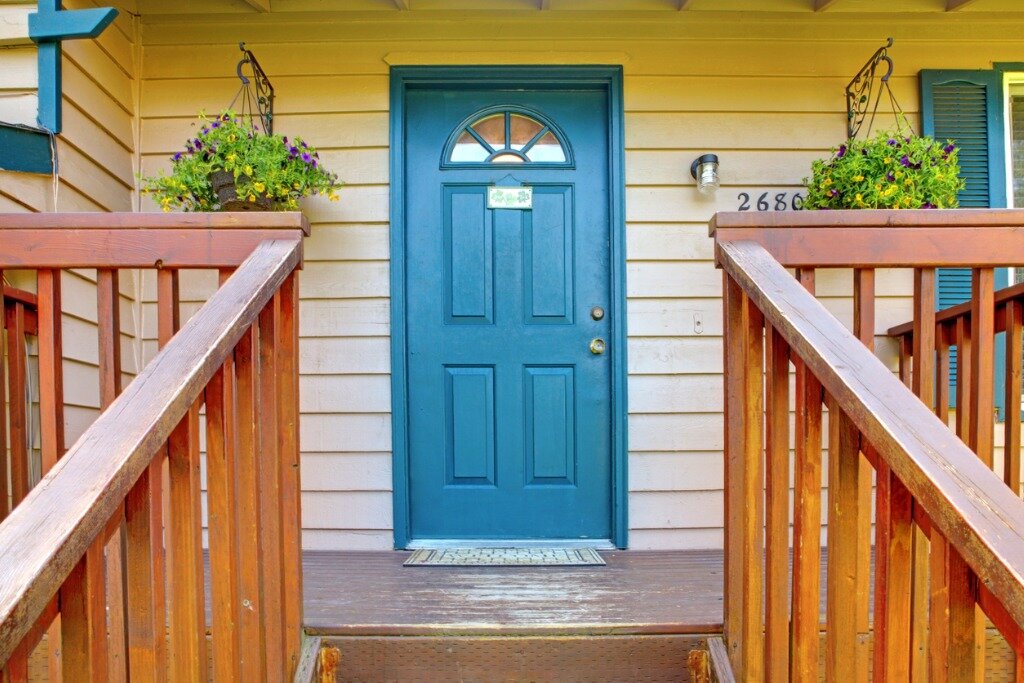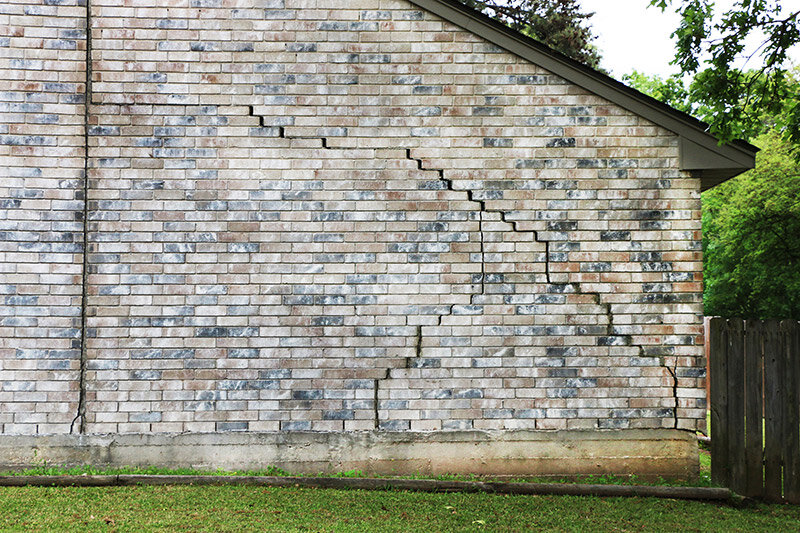
How Foundation Problems Can Impact Selling A House
Are you considering selling your home in the Dallas Fort Worth area? If so, and you think your home may need foundation repair, there are a few things you need to know. When selling your house with a realtor, there is usually a quick closing period of 30 days. A lot has to be squeezed into that short window of time to ensure a smooth closing. This includes a professional inspection of the house’s major mechanical systems (including plumbing, air conditioning, electrical, and foundation). Foundation problems in DFW are quite common, and existing issues may need to be resolved before the closing period. To help you know how to identify foundation problems and what to expect when repairing them, we’ve put together a list of common questions related to foundation repair.
What Causes Foundation Problems?

If a home needs foundation repair, it does not necessarily mean that the home has been neglected. Unfortunately, most foundation problems are directly related to the type of soil that is underneath a good number of houses in DFW. Most of Dallas, Collin, Tarrant, and Denton counties are considered to be in an area of Texas known as The Blackland Prairie and The Grand Prairie. Soil conditions throughout these areas are typically deep, alkaline clays. Clay soil is not only expansive, it is extremely absorbent. It gains a tremendous amount of volume when wet and then shrinks when dry, causing the soil under the house to expand and contract. This high shrink-swell property is the primary factor that causes damage to foundations. Therefore, it’s very important to be aware of the water around your home. When it comes to water, there are four primary culprits that you should keep an eye out for:
1. Poor Drainage – Poor drainage is one of the leading causes of foundation problems. If the soil is not graded so that water runs downhill away from your house, the pooling water will drain into the soil around your home. When the clay soil around the home rapidly expands (during wet seasons) it can push a foundation up and then contracts (during dry seasons) resulting settlement, it can lead to excessive movement in the foundation. If you notice pools of water after a rain, you may want to consider installing French or surface drains to direct the water away from the house. Gutters with downspouts can also be used to effectively discharge rain water away from the foundation of your home.
2. Poor Watering – While having too much water around the perimeter of a house can cause foundation problems, many foundation problems are actually caused by too little water around the perimeter of the house. The heat in the DFW metroplex can dry and crack the clay soils underneath the foundation causing the foundation to sink. Installing soaker houses around the foundation or a sprinkler system that waters around the perimeter of the house can prevent excess drying of the soil around the foundation.
3. Trees – Tree roots can also cause a lot of damage to foundations. As trees grow in size, they can swell against the foundation of a house, pushing against the walls. They can also work their way into cracks and gaps in the walls and move underneath the foundation, pushing upwards on the house and causing the house to settle as the earth dries. During the summer heat, trees compete with the soil for moisture. This can cause the foundation to settle unevenly. If you have large trees that are close to the house, you may want to consider removing the trees or having a root barrier installed.
4. Plumbing Leaks – A plumbing leak underneath the house can provide a steady supply of water to be absorbed by a small area of soil underneath the foundation causing upward pressure and can lead to cracks in a home’s foundation. f you suspect a plumbing leak, contact a professional plumber right away.
All of this sounds pretty bad, but the good news is that most foundation problems can be fixed.
How Does Foundation Repair Work?
We’ve been buying houses in Dallas Fort Worth since 2006 and we’ve had to fix our share of foundations. Early in the process, the owner of a foundation repair company told me something that stuck with me. He said, “There are two types of houses in North Texas – those the NEED foundation repair…and those that WILL NEED foundation repair”. Unfortunately, maintaining and repairing foundations is part of being a home owner in DFW.
If you think your home may need foundation repair, the first step is to order a report from a structural engineer. A structural engineer will take detailed measurements of any movement in a home’s foundation and create a diagram with the recommended number and location of piers required to level the foundation. There is one important thing to note – most foundation companies will come to your house and provide a free measurement report that is similar to the report that’s provided by a structural engineer. Foundation companies are in the business of selling foundation repair, and we’ve had experience with companies that recommended foundation repair that seemed unwarranted. It’s always best to start with a structural engineer. Once you have the report from the engineer, you can provide that report to the foundation company as the basis for requesting an estimate for the work. That ensures that the foundation company is not trying to sell you foundation repair that your home really may not need.
Depending on the extent of foundation movement in a home, the repairs can be quite simple or can be a major event. On average, foundation repairs are typically a 2-3 day process, although sometimes can take longer. Here’s what’s involved in a typical foundation repair process:
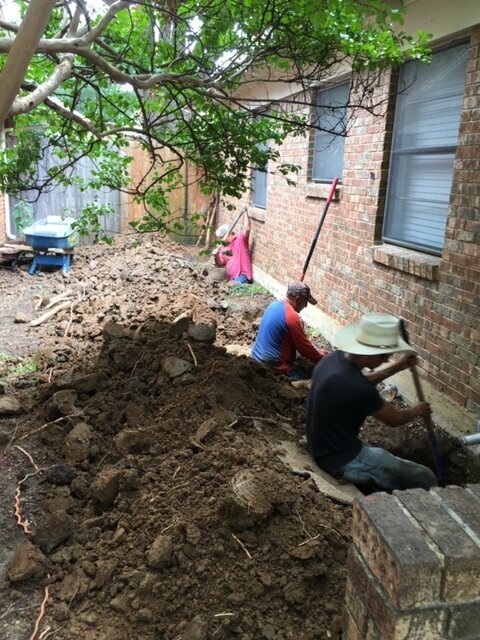
Exterior Piers – Almost every foundation repair requires installing piers around the perimeter of the house. Piers are concrete or steel columns that are pushed into the ground underneath the house until they reach the bedrock beneath the clay soil. The piers are typically installed at 6 foot increments around the perimeter of the house.
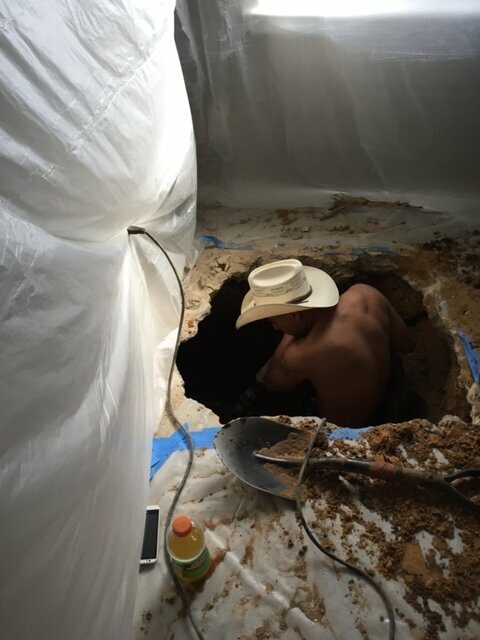
Interior Piers – If piers are required to be installed on the interior of the home, they can be installed two ways:
1. Tunnels can be dug underneath the home. The tunnels run under the slab at intervals from one end of the home to the other. They are needed to gain access to all interior foundation beams.
2. A “breakout” can be made directly into the slab in the interior of the home. A breakout is where the concrete surface underneath the floor is broken through so that the foundation beams can be reached. Breakouts are typically less expensive than tunneling, but they can be messy and very invasive, and definitely require replacing the flooring where the breakouts were made.
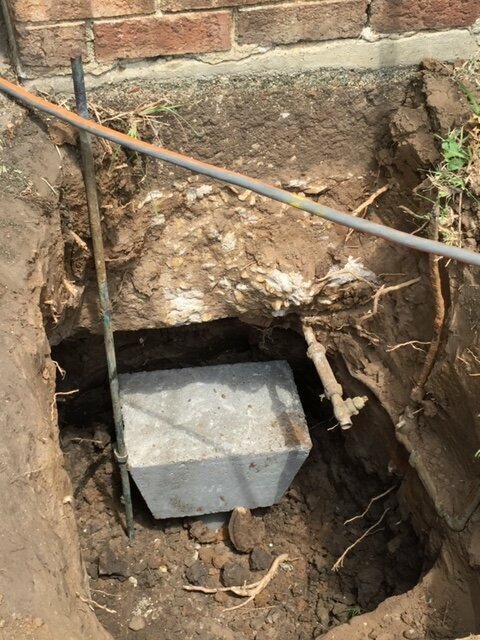
Foundation Leveling – Once the necessary piers have been installed under the house, the entire foundation and structure will slowly be lifted so that the foundation can be supported by the piers. This requires that the foundation be elevated using hydraulic jacks. Once the house is determined to be level, it will be positioned on top of the foundation piers in order to stabilize it.
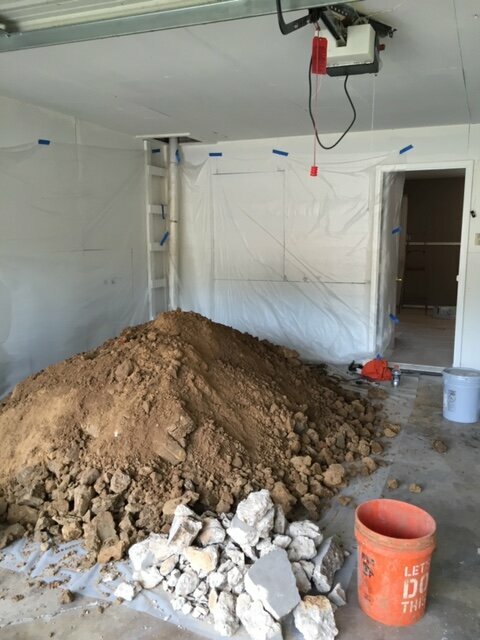
Plumbing Repairs – If there has been significant movement in a foundation, lifting the foundation often breaks some of the plumbing under the house and will require plumbers to locate and repair any broken supply or drain lines underneath the house. Depending on the location of the leak, this may require additional breakouts to allow the plumbers to access the broken pipe. Sometimes a lot of dirt has to be removed to access the broken plumbing!
What Are Signs That My House Needs Foundation Repair?
Houses settle over time, and a little unevenness isn’t cause for panic. At the same time, you’ll want to be alert to warning signs that more dramatic changes are taking place. Here are some things to look for that could indicate potential foundation problems:
- Cracks in the drywall
- Misaligned doors and windows
- Doors that stick or won’t shut
- Windows that are difficult to open or have cracks in the glass
- Uneven or sloping floors
- Gaps between the wall seams or between the wall and ceiling
- Cracks in the exterior brick
If any of the above is present, then you will need to schedule a professional foundation evaluation. If problems are present and require correction, you can arrange for repairs before selling your home or try listing your house for sale “as is”. If you opt to list your house for sale “as-is”, you will need to make note of the foundation problems in the seller’s disclosure form. Keep in mind, you will likely also have to sell at a lower price. If foundation problems are only discovered during the inspection process, the buyer may back out, or you will have to enter into last-minute negotiations to decide who will pay to repair the foundation.
How Much Does Foundation Repair Cost?
The average cost of foundation repair is approximately $4,500. If the foundation repair only requires installing exterior piers on one section of the house, the entire job may cost less than $2,500. Major repairs involving interior and exterior piers can cost $20,000 or more. In addition, repairing the foundation often involves destroying the existing flooring and can cause damage to the plumbing, which could result in significant additional costs after the foundation has been repaired.
Unlike an improvement to your property (like remodeling a bathroom or a kitchen) foundation repairs do not increase the value of your home, so it’s unlikely that you’ll recoup any of the repair cost when you sell.
Can I Sell A House That Needs Foundation Repair?
Yes, you can sell a home that needs foundation repair; however, it can be challenging. Even if a buyer is willing to accept your home in its current condition, many banks will not provide financing for a home that needs foundation repairs. Often, the foundation problems are not obvious, but are uncovered during the inspection process, which can derail a potential sale in a hurry. We’ve spoken to many home owners who have gone through the trouble of listing their house with a realtor, and accepting an offer, only to find out during the inspection that the home has foundation problems and that the bank requires the foundation problems to be fixed before closing. This typically results in the buyer walking away from the sale.
If you’ve read all of this, you may be a little worried about the cost or process of repairing your foundation. Here’s the good news – you don’t have pay to have your foundation repaired! If you’re considering selling you home, we can buy your property AS-IS and save you the hassle and cost associated with repairing your foundation.
If you think that selling your home may be a good option, fill in any of the forms so you can tell us about the house and leave us a way to contact you. Or you can simply call us at (972) 850-8655 today. We’ll do our best to help you evaluate your options. We even work with several local foundation companies and are happy to provide a referral if you decide that selling your home is not your best option. We are here to answer your questions and help you every step of the way.
As a bonus, just for contacting us, we’ll prepare a free home valuation report so that you can have the information you need to make the best decision for your situation.

